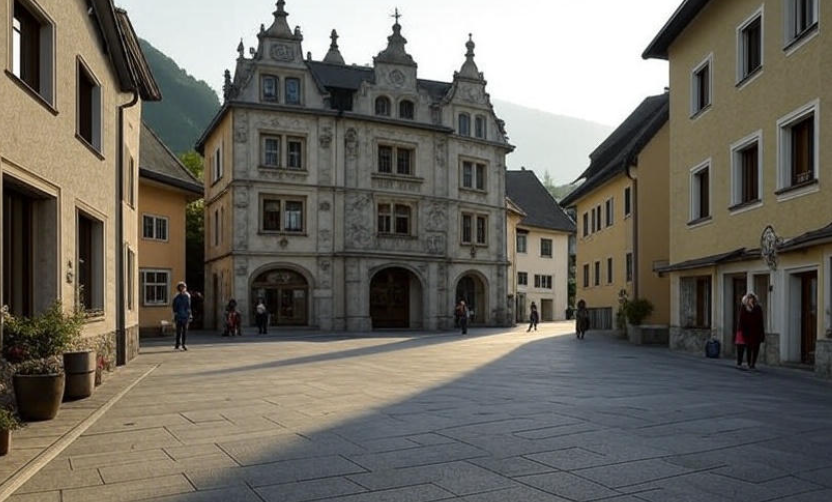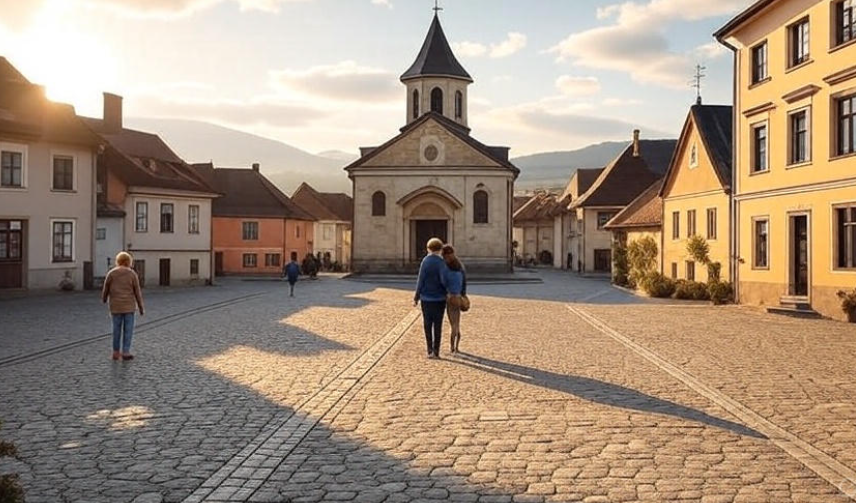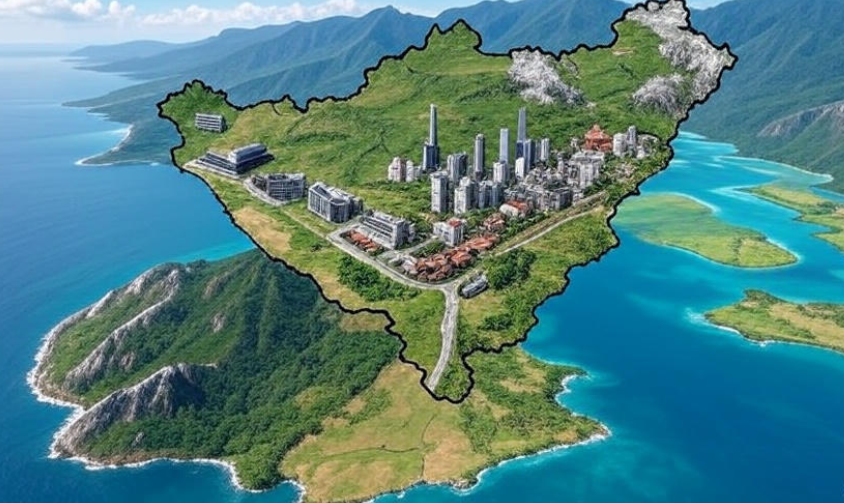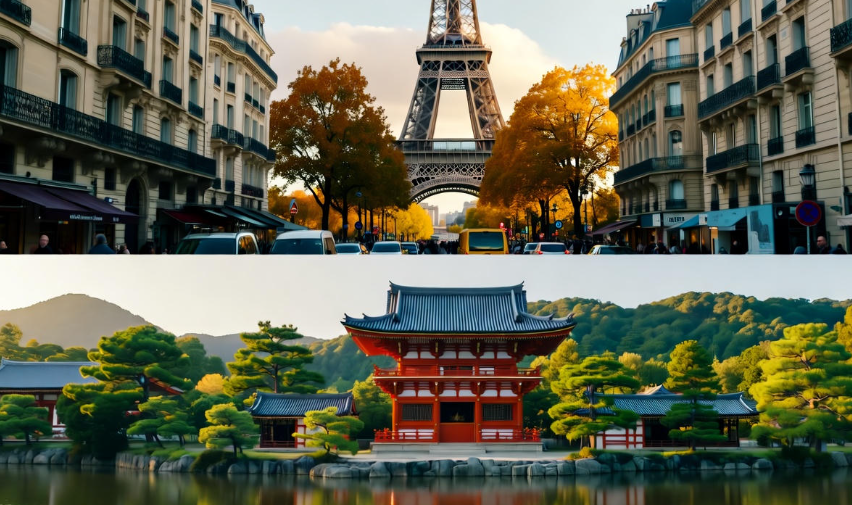When most people think of powerful countries, big names like the United States, China, or Germany usually come to mind. But size isn’t everything. Some of the world’s tiniest nations wield influence far beyond their land area or population.
Vatican City – Tiny but Powerful
Vatican City is the smallest country in the world, covering just 0.2 square miles. Yet, its influence is enormous. As the headquarters of the Roman Catholic Church, it has a unique global reach. The Pope, as a spiritual leader, impacts over a billion Catholics worldwide. Vatican City may not have a massive army or economy, but its moral and cultural influence is unmatched.
Monaco – Wealthy and Glamorous
Monaco is tiny, only about 0.78 square miles, yet it is a symbol of luxury and financial power. Known for its casinos, Formula 1 Grand Prix, and as a tax haven, Monaco attracts the world’s rich and famous. Its economy thrives on finance, tourism, and real estate, giving it a disproportionately large presence in global wealth discussions.
Liechtenstein – Banking Giant
Liechtenstein, a tiny landlocked country in Europe, is known for its stunning Alps and strong banking sector. With a population of roughly 40,000, it is one of the richest countries per capita. Its banking system, low corporate taxes, and business-friendly environment make it a major player in international finance.
Singapore – Small Land, Big Impact
Singapore is just 281 square miles, but it is a global hub for trade, finance, and innovation. Its strategic location at the crossroads of major shipping routes makes it vital for global trade. Singapore has one of the highest GDP per capita in the world and is known for its strong education system, smart city initiatives, and innovation in technology.
Malta – Cultural and Strategic Influence
Malta is a small island nation in the Mediterranean, but its history is rich. From ancient civilizations to being a strategic military base during World War II, Malta has always had significance beyond its size. Today, it influences Mediterranean politics and tourism, attracting millions of visitors every year. Its EU membership also adds to its international voice.
Andorra – Hidden Gem of the Alps
Nestled between France and Spain, Andorra covers just 180 square miles. It’s famous for skiing, tourism, and as a tax haven. Despite its small size, Andorra’s banking sector, strategic location, and thriving tourism industry give it a unique role in Europe. It also has a high standard of living for its residents. ❄️️
Luxembourg – Political and Economic Strength
Luxembourg may be small in size, but it punches way above its weight in politics and finance. With a population under 700,000, it is one of the richest nations per capita. Luxembourg is home to major EU institutions and influential financial institutions. Its stable economy and high quality of life make it a model for small nations seeking global relevance.
San Marino – The Oldest Republic
San Marino is tiny, just 24 square miles, but it is historically significant. It claims to be the world’s oldest republic, founded in 301 AD. While small, it maintains a unique political system and has survived through centuries of European conflict. Its tourism industry thrives on this history, giving it a quiet yet influential role in Europe.
Why Small Countries Can Have Big Influence
Size does not limit influence. Several factors allow these nations to have a global impact:
-
Strategic location: Places like Singapore and Malta benefit from trade routes and geographic significance.
-
Financial systems: Monaco, Liechtenstein, and Luxembourg leverage banking and tax policies to wield economic power.
-
Cultural influence: Vatican City and San Marino showcase how culture and history can translate into global impact.
-
Political uniqueness: Countries like Andorra and Luxembourg use diplomatic strategies to punch above their weight.
Table – Small Countries and Their Influence
| Country | Area (sq miles) | Population | Key Influence |
|---|---|---|---|
| Vatican City | 0.2 | 800 | Spiritual and cultural |
| Monaco | 0.78 | 39,000 | Wealth, tourism, finance |
| Liechtenstein | 62 | 40,000 | Banking and finance |
| Singapore | 281 | 5.9M | Trade, technology, finance |
| Malta | 122 | 525,000 | Tourism, history, politics |
| Andorra | 180 | 77,000 | Tourism, banking |
| Luxembourg | 998 | 660,000 | Finance, EU politics |
| San Marino | 24 | 34,000 | Historical significance |
Fun Facts About Small Yet Influential Countries
-
Vatican City issues its own stamps and coins, which are highly collectible worldwide. ✉️
-
Monaco hosts the famous Monaco Grand Prix, watched by millions globally. ️
-
Singapore has one of the cleanest and most organized cities in the world.
-
Malta’s location has made it a crossroads of Mediterranean civilizations for thousands of years.
-
Liechtenstein even has its own national anthem, although it’s rarely performed.

The Smallest Countries With Surprising Influence
FAQs
Q1: How can such small countries influence global politics?
Small countries often have strategic locations, financial clout, or cultural significance. This allows them to influence global decisions through trade, diplomacy, or religious leadership.
Q2: Are small countries economically strong?
Not always. While countries like Luxembourg, Singapore, and Liechtenstein are rich, others like San Marino or Andorra rely heavily on tourism. Economic strength comes from smart policies rather than size.
Q3: Why do some people move to these small countries?
Many are attracted by low taxes, high quality of life, job opportunities, or simply the prestige of living in a globally respected nation.
Q4: Do these small countries face challenges because of their size?
Yes. They are often dependent on neighbors for resources, have limited land for expansion, and must maintain strong international relations to stay relevant.
Q5: Can small countries compete with larger nations?
Absolutely! With the right strategies in finance, diplomacy, or culture, small countries can wield influence that rivals much larger nations.
Conclusion
Small countries remind us that size doesn’t determine power. Through finance, culture, strategic location, and history, these nations shape global conversations. They show that even a tiny country on the map can make a massive mark on the world stage. ✨




